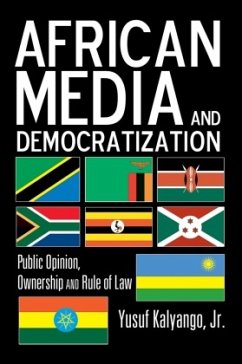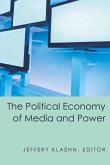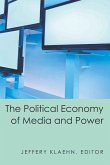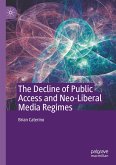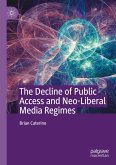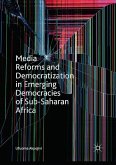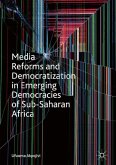At a time when many African regimes are transitioning from authoritarian states to democratization, this book offers a timely assessment of the role of media in this process in Eastern and Southern Africa (ESA). With the exception of South Africa, this issue has been understudied in the region.
Incorporating extensive public opinion research in eight countries from over 3,000 citizens, discussions from focus groups, and content analyses of media coverage, the book reveals public attitudes on highly controversial political and societal issues that are considered deadly taboo topics in Africa: public attitudes that explain contemporary waves of national revolutions.
While the issues are empirically discussed in a studious, fair and reasoned manner, the book seeks to challenge ESA governments to protect free speech, political expression, and unfettered media discourse with the hope of empowering Africans to challenge the status quo.
The theoretical underpinnings and empirical analyses are contextualized from the author's firsthand knowledge as a former award-winning international journalist, war correspondent, and political talk-show host in East Africa. Throughout, the material is presented in a straightforward and accessible style.
Overall, the book offers an important resource for students, media professionals or advocates, and scholars interested in the cutting-edge debates surrounding the challenges facing contemporary media, third world politics, and democratization. It offers ideas about how the media can mobilize the public to make informed political choices that strengthen and foster good governance and the rule of law in Africa's revolutionary transition to democratic rule.
Incorporating extensive public opinion research in eight countries from over 3,000 citizens, discussions from focus groups, and content analyses of media coverage, the book reveals public attitudes on highly controversial political and societal issues that are considered deadly taboo topics in Africa: public attitudes that explain contemporary waves of national revolutions.
While the issues are empirically discussed in a studious, fair and reasoned manner, the book seeks to challenge ESA governments to protect free speech, political expression, and unfettered media discourse with the hope of empowering Africans to challenge the status quo.
The theoretical underpinnings and empirical analyses are contextualized from the author's firsthand knowledge as a former award-winning international journalist, war correspondent, and political talk-show host in East Africa. Throughout, the material is presented in a straightforward and accessible style.
Overall, the book offers an important resource for students, media professionals or advocates, and scholars interested in the cutting-edge debates surrounding the challenges facing contemporary media, third world politics, and democratization. It offers ideas about how the media can mobilize the public to make informed political choices that strengthen and foster good governance and the rule of law in Africa's revolutionary transition to democratic rule.

